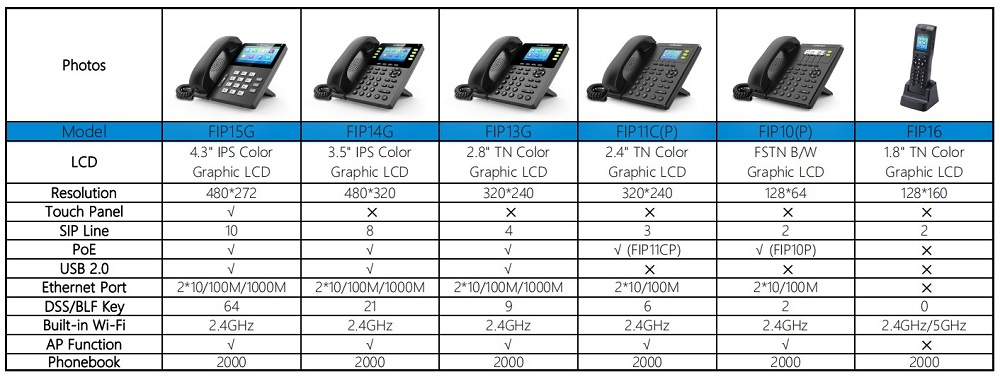Companies across industries are increasingly choosing VoIP phones instead of landlines to support their business calling needs. So what’s the difference between a VoIP phone and a landline phone anyway?
What’s VoIP Phone?
VoIP, which stands for Voice over Internet Protocol, is the technology that lets you make and receive phone calls over the Internet in real-time. A VoIP phone is a device that uses VoIP technologies to provide telephone service. VoIP technology converts audio signals from voice to digital data and transmits them to the destination via the Internet. Generally speaking, VoIP phone is an Internet phone.
What’s Landline Phone?
Traditional landlines use a metal wire or optical fiber telephone line to establish a connection and transmit calls. As landlines need to be physically connected to phone system, which means that there is no way to be used as a remote working tool.
What are the Advantages of Using VoIP Phone Over Landline Phone?
Flexibility
With VoIP phones, you can still answer phone calls when working from home. While landlines require you to be fixed to one place. Besides, Flyingvoice VoIP phones even support wireless connection that helps you get rid of complicated wiring.
Lower Costs
Landlines require a lot of hardware and complicated set-up by a technician, so its installation and running costs are remarkably higher than the costs of VoIP phones. Plus, VoIP phones can significantly reduce local, long-distance, and international calling fees. Your employees can even make free calls to each other with VoIP phone system.
Advanced Call Features
VoIP phones provide more call features than landlines do, which can help you to manage more calls and enhance your team’s productivity.
● Call Park is a VoIP phone system feature that allows users to park a call on a special extension and then retrieve it from another phone.
● Call Monitoring feature allows you to monitor calls of other extensions in real-time.
● Multicast Paging feature enables you to broadcast a real-time, one-way announcement easily and quickly.
● Call Pickup feature allows users to answer someone else's phone call remotely.
Fast Installation
Unlike analog phone systems, installing a VoIP phone system could be in a few minutes. All you need to do is power on the phone and connect it to the Internet, then you can achieve Auto Provisioning of Flyingvoice VoIP phones. No need to buy and install bulky telecom equipment.
Easy Management
If you choose Flyingvoice VoIP phones, you can manage your devices centrally and remotely with FACS - a remote management system. With rich functions, such as remote management, rapid deployment, real-time monitoring and one-click sign-in/out, FACS can make your business more efficient.
Conclusion
Overall, VoIP phone is definitely the winner compared to landlines. It comes with no surprise that so many companies are switch from landlines to VoIP phone systems. Still using landlines? It’s time to choose the right VoIP phone for your business.
Compare Flyingvoice VoIP Phones

- Exploring Flyingvoice IP Phone Features: From Basic to Advanced Functionalities
- Flyingvoice USB Recording: Convenient and Efficient Communication Records
- Unveiling the Advanced Remote Text Messaging Functionality on Flyingvoice IP Phones
- Effortless SMS with Flyingvoice IP Phones
- Flyingvoice P1X Series IP Phones vs FIP1X Series IP Phones








 Back to list
Back to list
